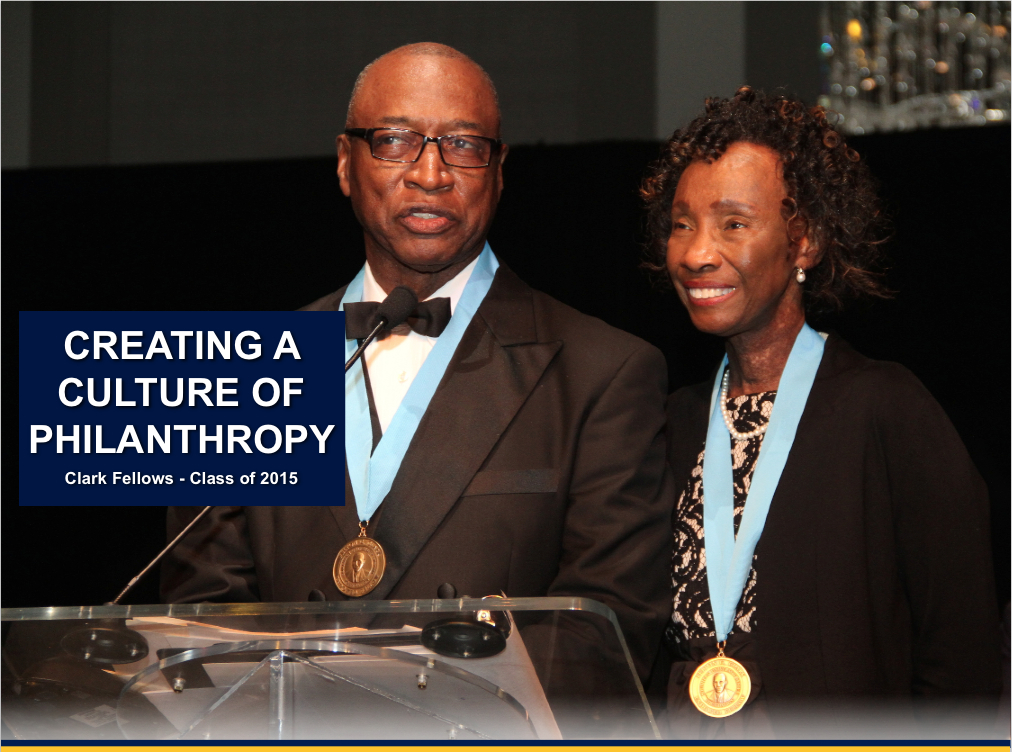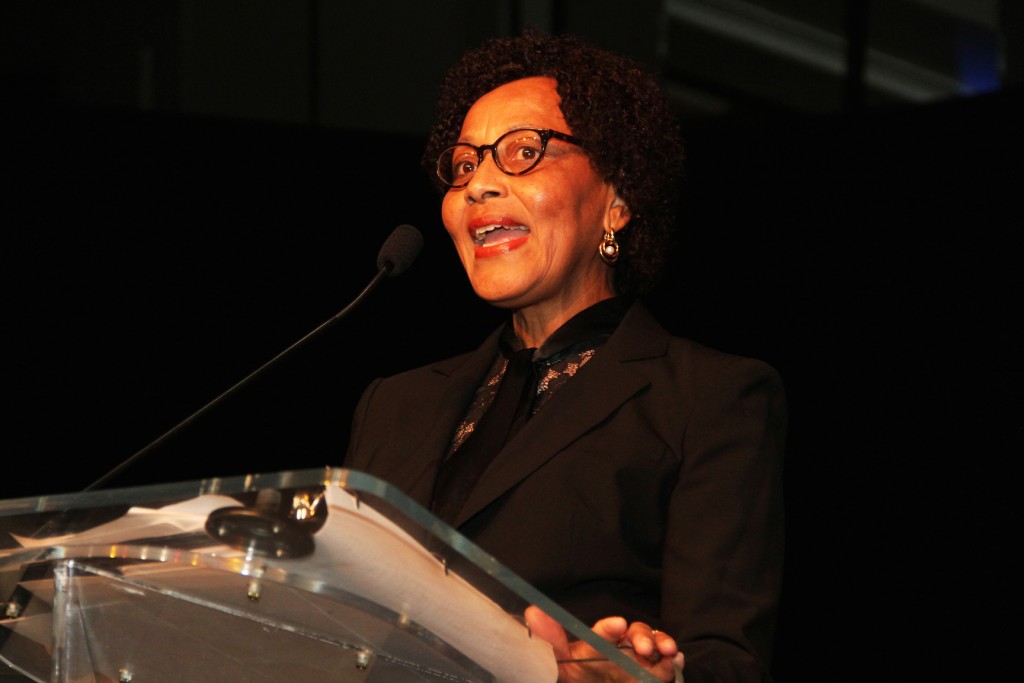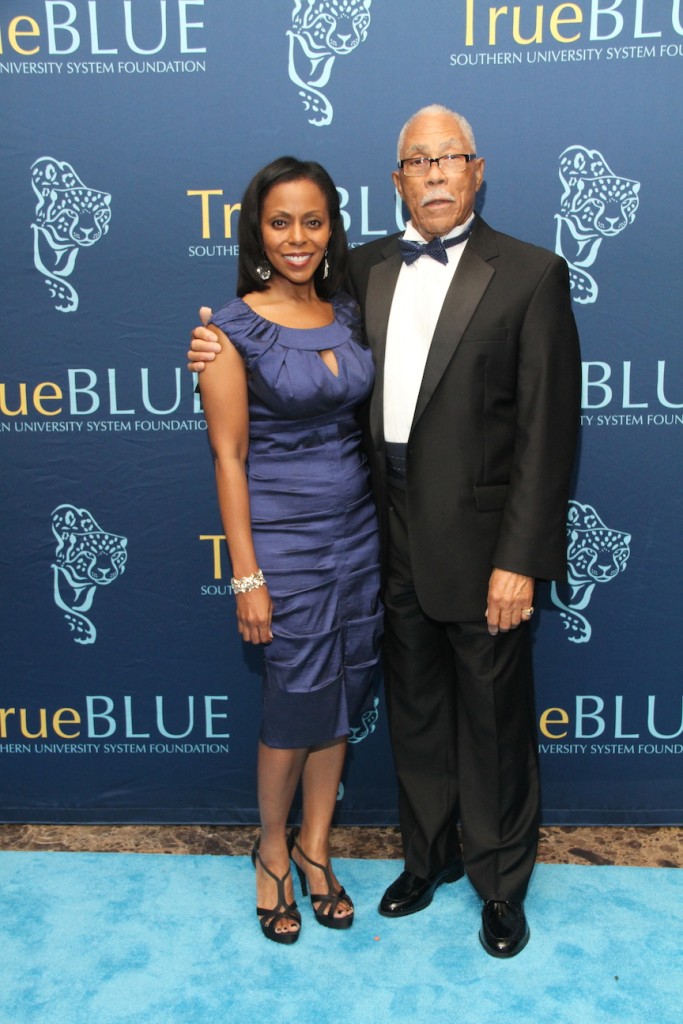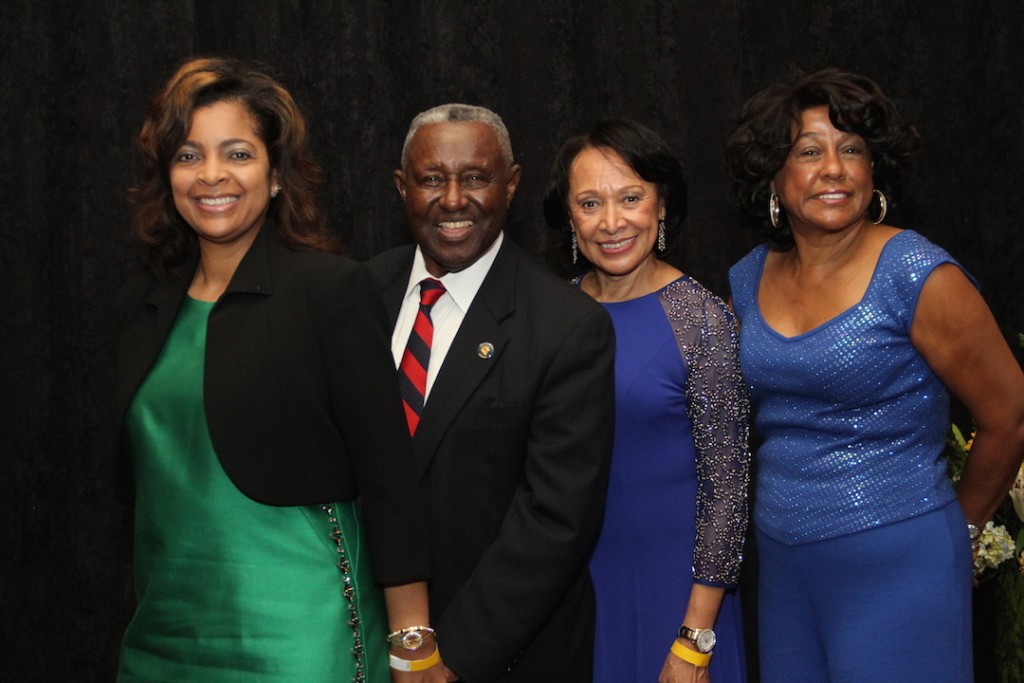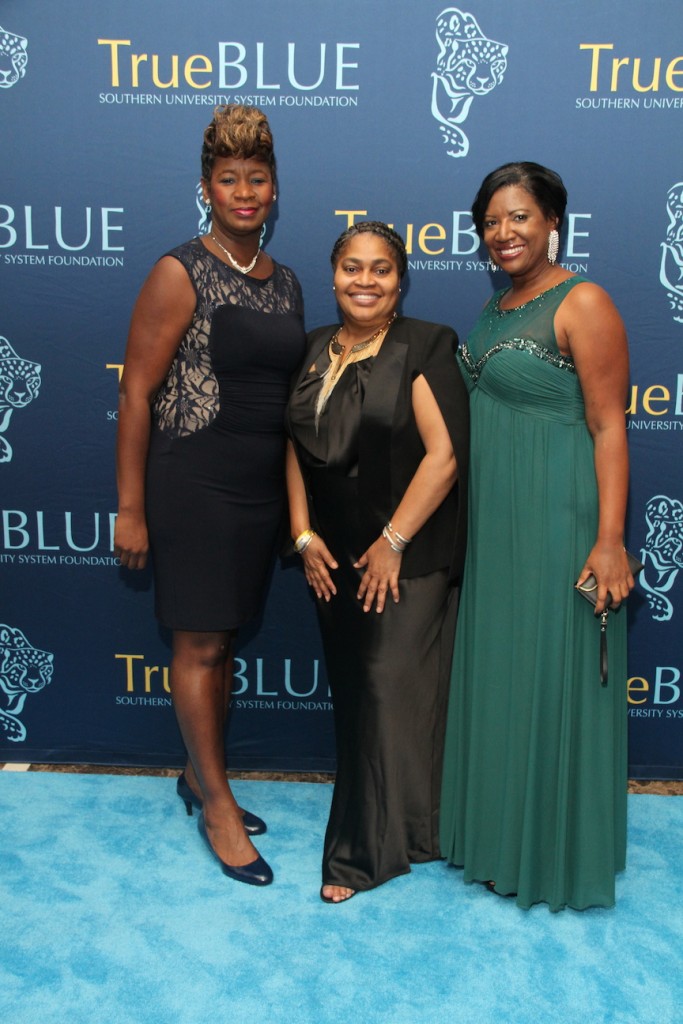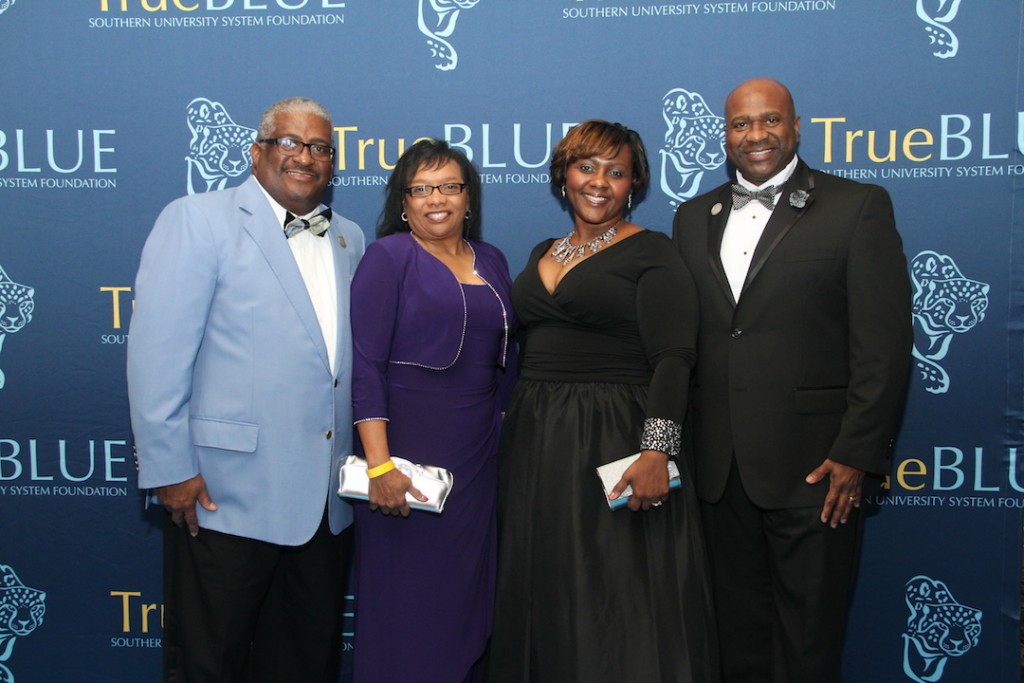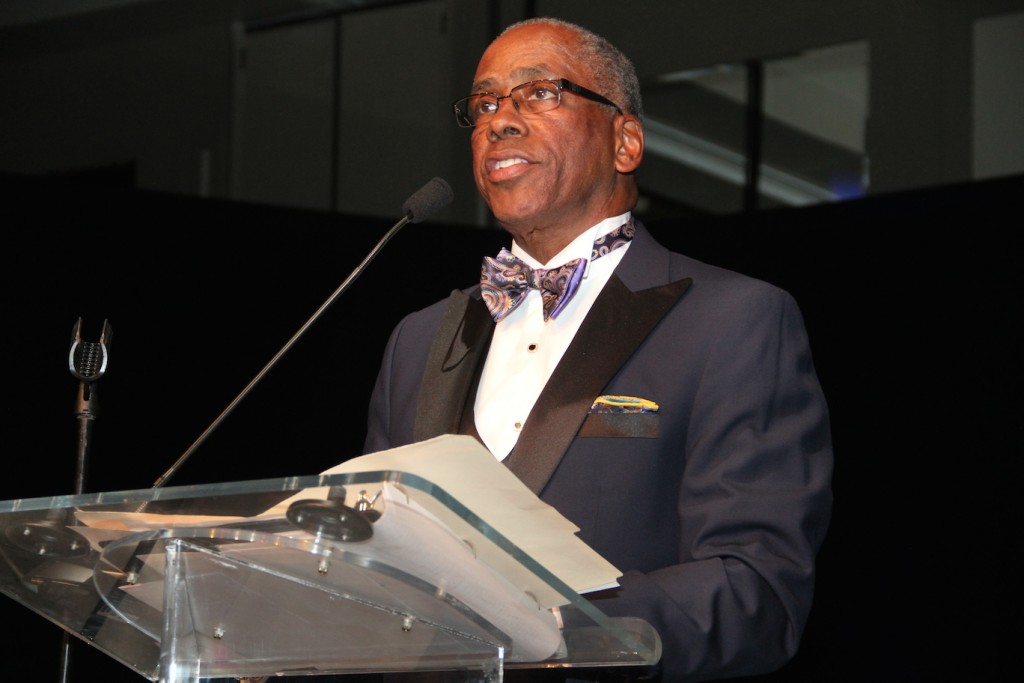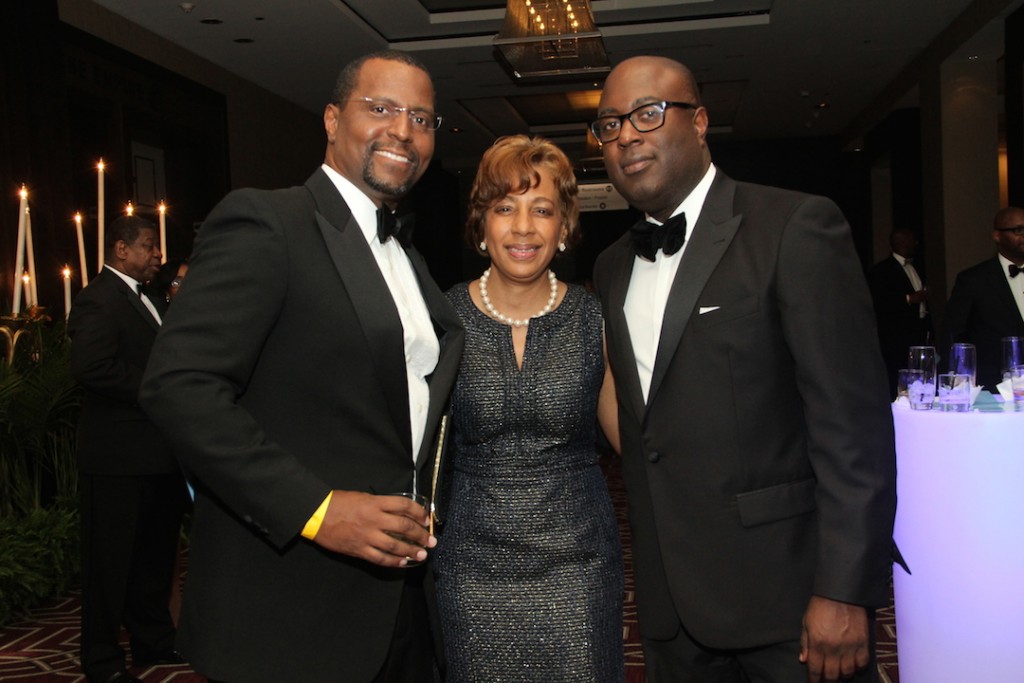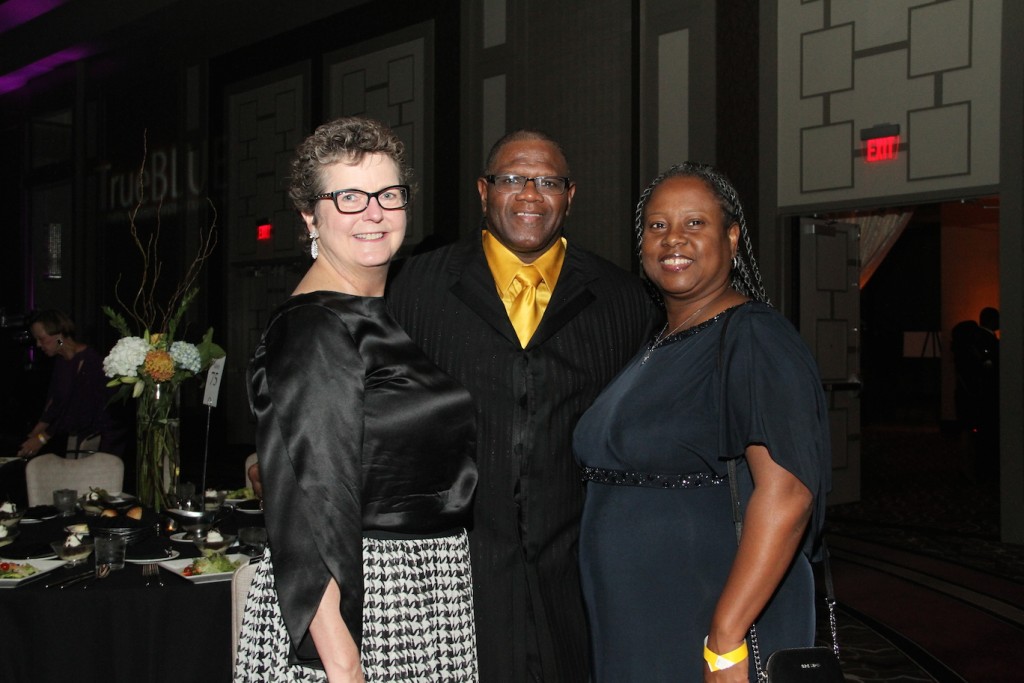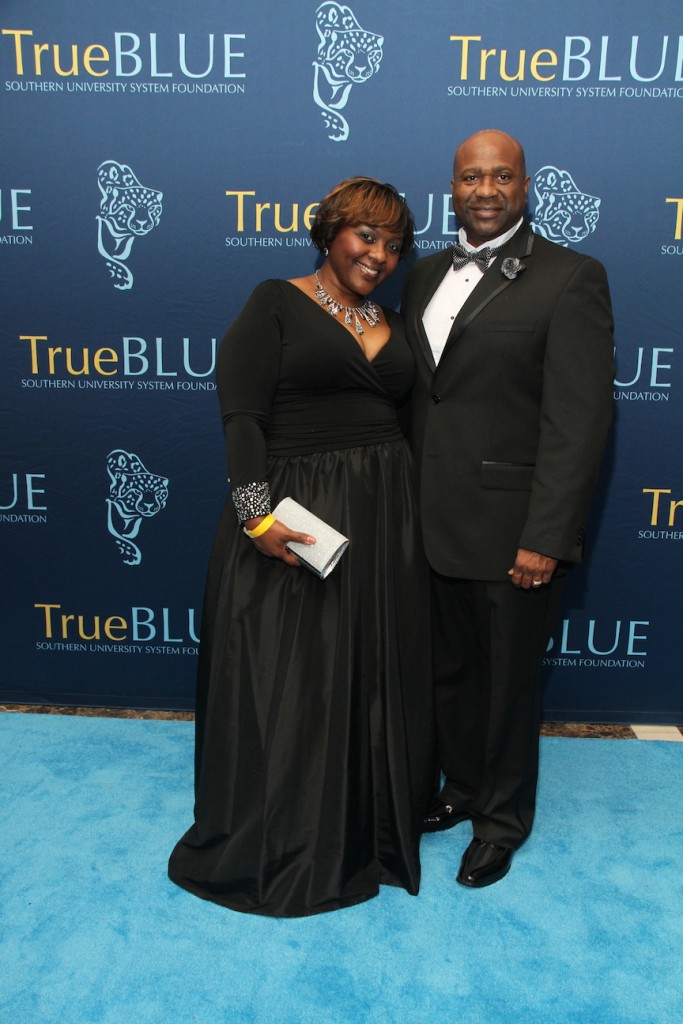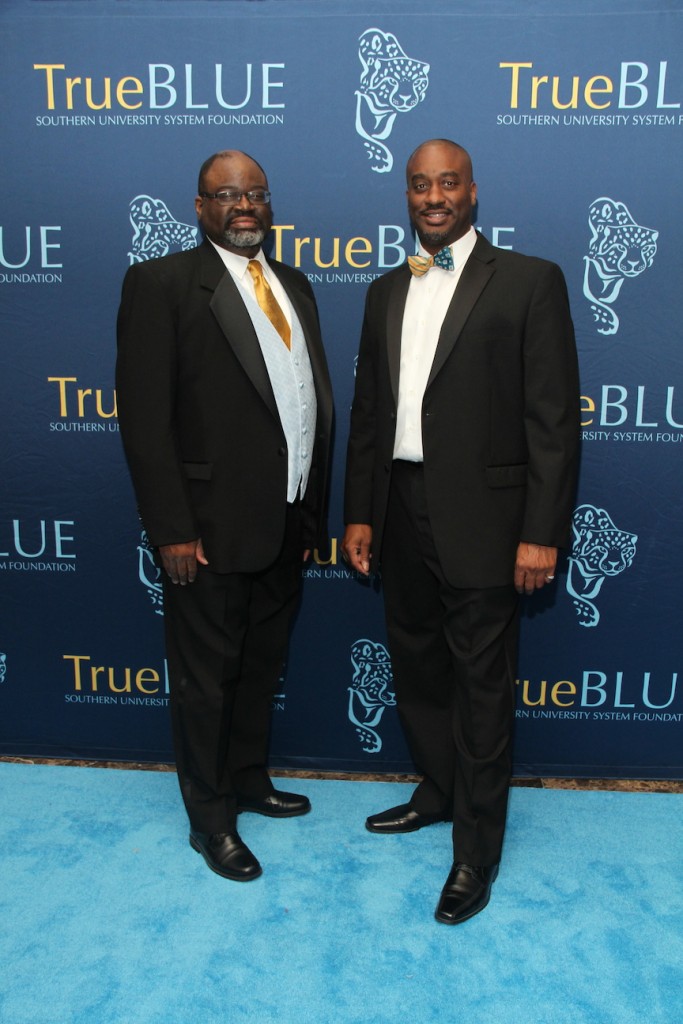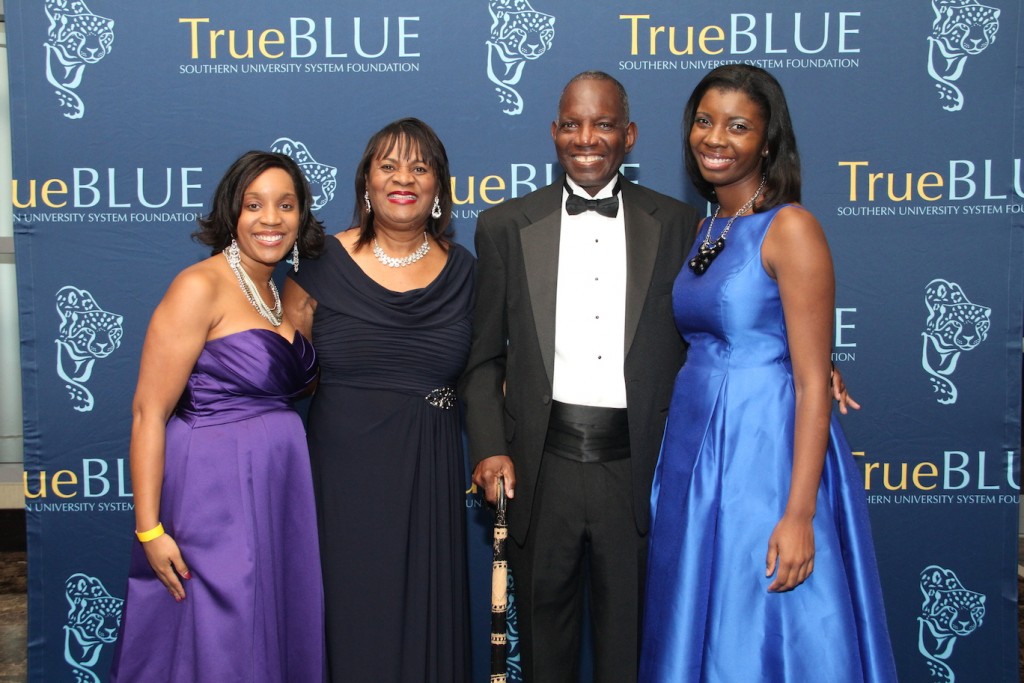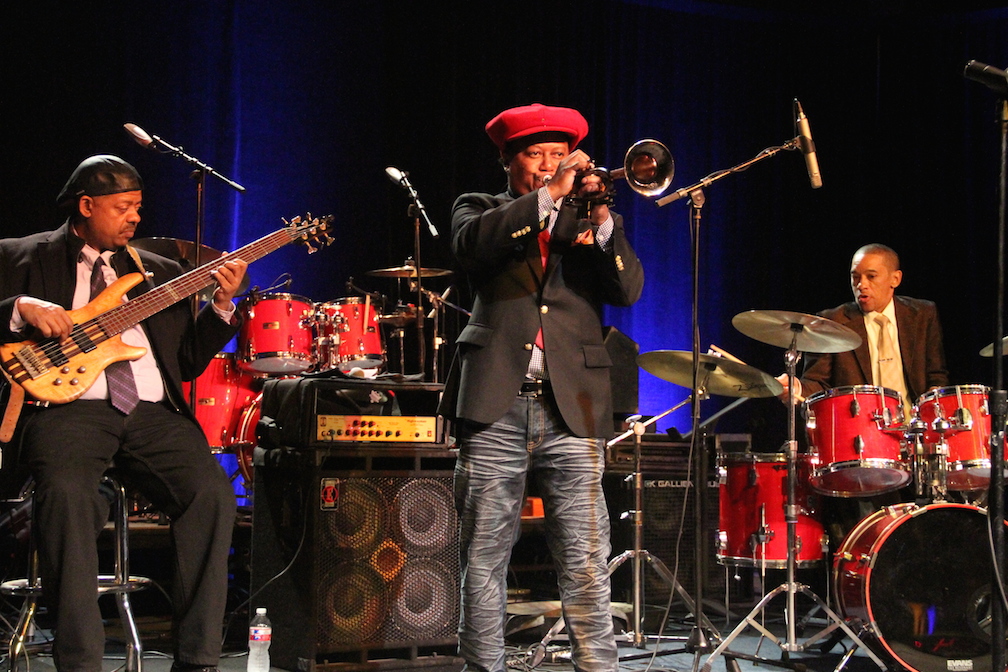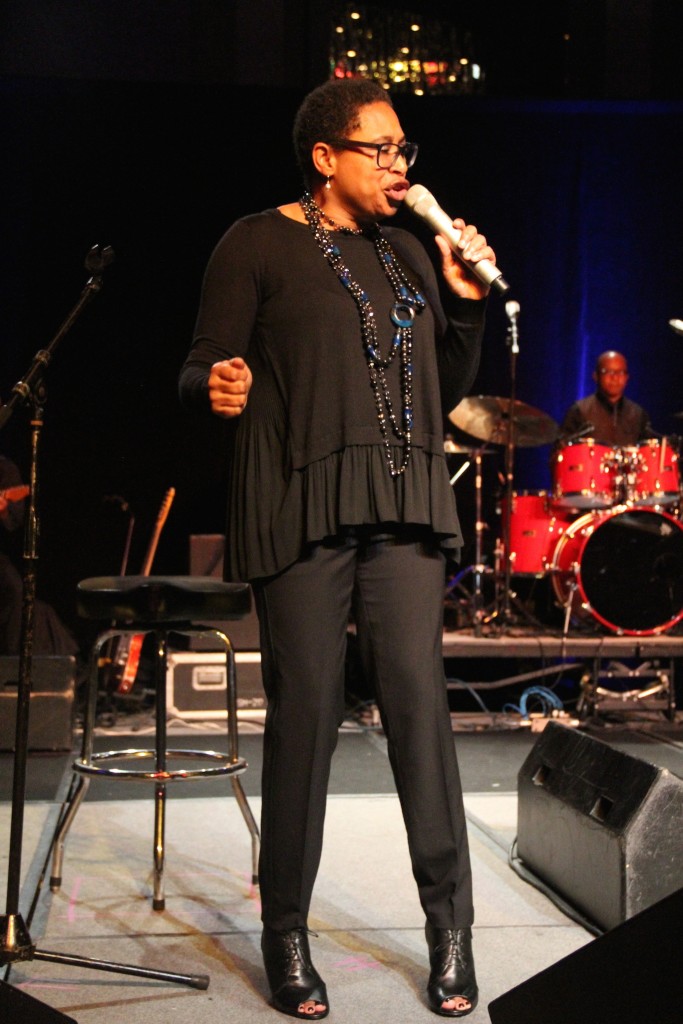On Friday, November 27, 2015, the Southern University System Foundation held its second annual TrueBLUE Donor Appreciation Gala at he Hyatt Regency Hotel Empire Ballroom in New Orleans, Louisiana. The event celebrated and honored donors who generously make philanthropic contributions to the System and its campuses. Musician and vocalist Rachelle Ferrell and jazz trumpeter Kermit Ruffins performed during the Southern University TrueBLUE Donor Appreciation Gala.
The University Club
In an effort to create a culture of philanthropy, the Southern University System Foundation will induct individuals and organizations into the University Club annually. Membership in the University Club requires cumulative cash contributions totaling no less than $100,000 over the donor’s lifetime.
Celeste A. Clark, Southern University alum and retired senior executive of W.K Kellogg Company was inducted as a member of the University Club at the TrueBlue Donor Appreciation Gala. Clark has directed more than $100,000 in philanthropic support to the University through her affiliation with the W.K. Kellogg Company.
Felton Grandison Clark Fellows
Southern University alums James and Betty Brown and Anna M. Jones, immediate-past Southern University System Foundation chairwoman were inducted as the 2015 Felton Grandison Clark Endowed Fellows. Fellows contribute a one-time cash gift of no less than $10,000 to the SU System Foundation Endowment Fund.
Felton Grandison Clark (1903-1970) was president of Southern University in Baton Rouge, Louisiana, from 1938 until 1969. Clark’s father, Dr. Joseph S. Clark, founded Southern University in 1914 and preceded Clark as president of the university. Clark attended Southern and then completed his undergraduate work at Beloit College. He later received graduate degrees, including a doctoral degree from Columbia University.
Clark’s tenure as president of Southern included two incidents that attracted national attention. First, in March 1960, a small group of University students participated in sit-in protests at several lunch counters in Baton Rouge; a much larger group of Southern University students, estimated at the time to number 1,000 students, participated in a demonstration on the steps of the Louisiana State Capitol. Clark, reportedly bowing to pressure from Governor Earl Long, expelled eighteen of the students who participated in the protests. Hundreds of other students withdrew from the university as a manresult. In January 1962, Clark temporarily closed Southern University to combat race-related student demonstrations.
Later in the decade, the rift between Southern University students and the Clark administration began to heal. Clark encouraged several chemical companies to invest in Louisiana and to hire Southern graduates. He also focused resources on developing and expanding the University’s graduate and professional schools.
Under Clark’s leadership, Southern University prospered. It grew from a small college with 40 buildings and 1,500 students in 1938 to a large public university with campuses in New Orleans and Shreveport. At his retirement in 1969, the University had more than 11,000 students, making it the largest historically black university in the nation with an annual budget exceeding $12 million dollars.
Additional Gala Photos

